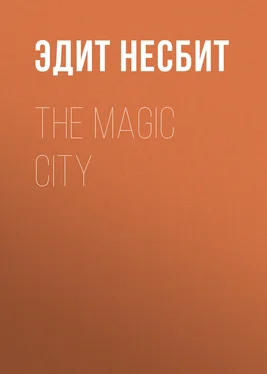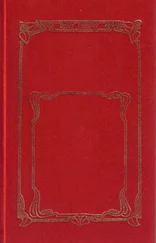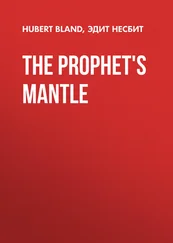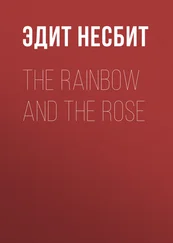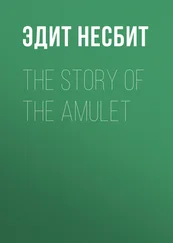Эдит Несбит - The Magic City
Здесь есть возможность читать онлайн «Эдит Несбит - The Magic City» — ознакомительный отрывок электронной книги совершенно бесплатно, а после прочтения отрывка купить полную версию. В некоторых случаях можно слушать аудио, скачать через торрент в формате fb2 и присутствует краткое содержание. Жанр: foreign_children, foreign_antique, foreign_prose, на английском языке. Описание произведения, (предисловие) а так же отзывы посетителей доступны на портале библиотеки ЛибКат.
- Название:The Magic City
- Автор:
- Жанр:
- Год:неизвестен
- ISBN:нет данных
- Рейтинг книги:5 / 5. Голосов: 1
-
Избранное:Добавить в избранное
- Отзывы:
-
Ваша оценка:
- 100
- 1
- 2
- 3
- 4
- 5
The Magic City: краткое содержание, описание и аннотация
Предлагаем к чтению аннотацию, описание, краткое содержание или предисловие (зависит от того, что написал сам автор книги «The Magic City»). Если вы не нашли необходимую информацию о книге — напишите в комментариях, мы постараемся отыскать её.
The Magic City — читать онлайн ознакомительный отрывок
Ниже представлен текст книги, разбитый по страницам. Система сохранения места последней прочитанной страницы, позволяет с удобством читать онлайн бесплатно книгу «The Magic City», без необходимости каждый раз заново искать на чём Вы остановились. Поставьте закладку, и сможете в любой момент перейти на страницу, на которой закончили чтение.
Интервал:
Закладка:
'What's the matter?' said Philip sleepily.
'That's the question,' said the man in red. 'Come along to the guard-room and give an account of yourself, you young shaver.'
He took Philip's ear gently but firmly between a very hard finger and thumb.
'Leave go,' said Philip, 'I'm not going to run away.' And he stood up feeling very brave.
The man shifted his hold from ear to shoulder and led Philip through one of those doors which he had thought of exploring by daylight. It was not daylight yet, and the room, large and bare, with an arch at each end and narrow little windows at the sides, was lighted by horn lanterns and tall tapers in pewter candlesticks. It seemed to Philip that the room was full of soldiers.
Their captain, with a good deal of gold about him and a very smart black moustache, got up from a bench.
'Look what I've caught, sir,' said the man who owned the hand on Philip's shoulder.
'Humph,' said the captain, 'so it's really happened at last.'
'What has?' said Philip.
'Why, you have,' said the captain. 'Don't be frightened, little man.'
'I'm not frightened,' said Philip, and added politely, 'I should be so much obliged if you'd tell me what you mean.' He added something which he had heard people say when they asked the way to the market or the public gardens, 'I'm quite a stranger here,' he said.
A jolly roar of laughter went up from the red-coats.
'It isn't manners to laugh at strangers,' said Philip.
'Mind your own manners,' said the captain sharply; 'in this country little boys speak when they're spoken to. Stranger, eh? Well, we knew that, you know!'
Philip, though he felt snubbed, yet felt grand too. Here he was in the middle of an adventure with grown-up soldiers. He threw out his chest and tried to look manly.
The captain sat down in a chair at the end of a long table, drew a black book to him—a black book covered with dust—and began to rub a rusty pen-nib on his sword, which was not rusty.
'Come now,' he said, opening the book, 'tell me how you came here. And mind you speak the truth.'
'I always speak the truth,' said Philip proudly.
All the soldiers rose and saluted him with looks of deep surprise and respect.
'Well, nearly always,' said Philip, hot to the ears, and the soldiers clattered stiffly down again on to the benches, laughing once more. Philip had imagined there to be more discipline in the army.
'How did you come here?' said the captain.
'Up the great bridge staircase,' said Philip.
The captain wrote busily in the book.
'What did you come for?'
'I didn't know what else to do. There was nothing but illimitable prairie—and so I came up.'
'You are a very bold boy,' said the captain.
'Thank you,' said Philip. 'I do want to be.'
'What was your purpose in coming?'
'I didn't do it on purpose—I just happened to come.'
The captain wrote that down too. And then he and Philip and the soldiers looked at each other in silence.
'Well?' said the boy.
'Well?' said the captain.
'I do wish,' said the boy, 'you'd tell me what you meant by my really happening after all. And then I wish you'd tell me the way home.'
'Where do you want to get to?' asked the captain.
'The address ,' said Philip, 'is The Grange, Ravelsham, Sussex.'
'Don't know it,' said the captain briefly, 'and anyhow you can't go back there now. Didn't you read the notice at the top of the ladder? Trespassers will be prosecuted. You've got to be prosecuted before you can go back anywhere.'
'I'd rather be persecuted than go down that ladder again,' he said. 'I suppose it won't be very bad—being persecuted, I mean?'
His idea of persecution was derived from books. He thought it to be something vaguely unpleasant from which one escaped in disguise—adventurous and always successful.
'That's for the judges to decide,' said the captain, 'it's a serious thing trespassing in our city. This guard is put here expressly to prevent it.'
'Do you have many trespassers?' Philip asked. The captain seemed kind, and Philip had a great-uncle who was a judge, so the word judges made him think of tips and good advice, rather than of justice and punishment.
'Many trespassers indeed!' the captain almost snorted his answer. 'That's just it. There's never been one before. You're the first. For years and years and years there's been a guard here, because when the town was first built the astrologers foretold that some day there would be a trespasser who would do untold mischief. So it's our privilege—we're the Polistopolitan guards—to keep watch over the only way by which a trespasser could come in.'
'May I sit down?' said Philip suddenly, and the soldiers made room for him on the bench.
'My father and my grandfather and all my ancestors were in the guards,' said the captain proudly. 'It's a very great honour.'
'I wonder,' said Philip, 'why you don't cut off the end of your ladder—the top end I mean; then nobody could come up.'
'That would never do,' said the captain, 'because, you see, there's another prophecy. The great deliverer is to come that way.'
'Couldn't I,' suggested Philip shyly, 'couldn't I be the deliverer instead of the trespasser? I'd much rather, you know.'
'I daresay you would,' said the captain; 'but people can't be deliverers just because they'd much rather, you know.'
'And isn't any one to come up the ladder bridge except just those two?'
'We don't know; that's just it. You know what prophecies are.'
'I'm afraid I don't—exactly.'
'So vague and mixed up, I mean. The one I'm telling you about goes something like this.
Who comes up the ladder stair?
Beware, beware,
Steely eyes and copper hair
Strife and grief and pain to bear
All come up the ladder stair.
You see we can't tell whether that means one person or a lot of people with steely eyes and copper hair.'
'My hair's just plain boy-colour,' said Philip; 'my sister says so, and my eyes are blue, I believe.'
'I can't see in this light;' the captain leaned his elbows on the table and looked earnestly in the boy's eyes. 'No, I can't see. The other prophecy goes:
From down and down and very far down
The king shall come to take his own;
He shall deliver the Magic town,
And all that he made shall be his own.
Beware, take care. Beware, prepare,
The king shall come by the ladder stair.
'How jolly,' said Philip; 'I love poetry. Do you know any more?'
'There are heaps of prophecies of course,' said the captain; 'the astrologers must do something to earn their pay. There's rather a nice one:
Every night when the bright stars blink
The guards shall turn out, and have a drink
As the clock strikes two.
And every night when no stars are seen
The guards shall drink in their own canteen
When the clock strikes two.
To-night there aren't any stars, so we have the drinks served here. It's less trouble than going across the square to the canteen, and the principle's the same. Principle is the great thing with a prophecy, my boy.'
'Yes,' said Philip. And then the far-away bell beat again. One, two. And outside was a light patter of feet.
A soldier rose—saluted his officer and threw open the door. There was a moment's pause; Philip expected some one to come in with a tray and glasses, as they did at his great-uncle's when gentlemen were suddenly thirsty at times that were not meal-times.
But instead, after a moment's pause, a dozen greyhounds stepped daintily in on their padded cat-like feet; and round the neck of each dog was slung a roundish thing that looked like one of the little barrels which St. Bernard dogs wear round their necks in the pictures. And when these were loosened and laid on the table Philip was charmed to see that the roundish things were not barrels but cocoa-nuts.
Читать дальшеИнтервал:
Закладка:
Похожие книги на «The Magic City»
Представляем Вашему вниманию похожие книги на «The Magic City» списком для выбора. Мы отобрали схожую по названию и смыслу литературу в надежде предоставить читателям больше вариантов отыскать новые, интересные, ещё непрочитанные произведения.
Обсуждение, отзывы о книге «The Magic City» и просто собственные мнения читателей. Оставьте ваши комментарии, напишите, что Вы думаете о произведении, его смысле или главных героях. Укажите что конкретно понравилось, а что нет, и почему Вы так считаете.
